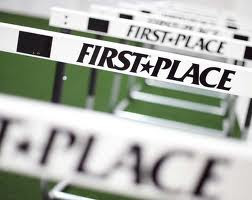Have you read in amazement about the impending deportation of about 400 Nigerian students studying in the United Kingdom? Pretty sure you have! Am I surprised? I'll say....yes, a little bit. My opinion aside; the reason for this deportation is that the London Metropolitan University has administrative challenges.
The UK Border Agency (UKBA) announced on Wednesday that the University lost its Highly Trusted Status for sponsoring international students. More than a quarter of the University’s foreign students did not have permission to be in the UK, the Immigration Minister said. Foreign students sponsored by the school to the UK now face eviction if they fail to secure an alternative sponsor within two months, starting from Thursday(yesterday).
It is partly for issues such as these that I was inspired to begin writing a blog! Our future depends on EDUCATION, EDUCATION, EDUCATION!
Did you read that? The University had lost its 'highly trusted' status for sponsoring' international students??? Surely a large portion of the London Met Uni foreign students will be Nigerians as we are now prone to seeking foriegn degrees.
Did you read that? The University had lost its 'highly trusted' status for sponsoring' international students??? Surely a large portion of the London Met Uni foreign students will be Nigerians as we are now prone to seeking foriegn degrees.
What does this tell us? If not handled properly, a lot of dreams and hopes may be shattered. I can't seem to stop thinking that this didn't have to happen if we had a lot more quality universities. Our higher education is largely unsought for by a good number of Nigerians in recent years. When Nigerians school abroad, they come back home and command higher-paying jobs, so why not!.
Today, dear Learning Craft readers, let me not begin another eulogy of the obvious solutions that WE ALL know isn't rocket science. Please read some comments from affected students culled from 'punchng.com'.
'Some people come from poorer backgrounds… parents have sold their homes or land and made huge sacrifices to get them here,’ says London Met student facing deportation.
Lilian Owhor, 20, from Nigeria, is about to start her second year reading forensic science.
She said, “I’m really worried because this is my future.
“I have come in today to get my transcripts, as I will have to see if I can transfer to another university.
“I haven’t been very happy since yesterday. My friends have told me to have hope.
“The university have said they would help us. I contacted them yesterday before the final decision was announced but I haven’t spoken to anyone yet today.
“I haven’t told my parents. I am just hoping I don’t have to go back to Nigeria. My fees are around £11,000 per year. I have already spent a lot of money on my education here.”
You be the judge.

























